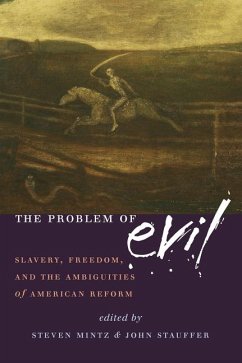A collective effort to present a new kind of moral history, this volume seeks to show how the study of the past can illuminate profound ethical and philosophical issues. More specifically, the contributors address a variety of questions raised by the history of American slavery. How did freedom--personal, civic, and political--become one of the most cherished values in the Western world? How has the language of slavery been applied to other instances of exploitation and depersonalization? To what extent is America's high homicide rate a legacy of slavery? Did the abolitionist movement's tendency to view slavery as a product of sin, rather than as a structural and economic problem, accelerate or impede emancipation? Divided into four parts, with introductions to each section by editors Steven Mintz and John Stauffer, the essays provide succinct guides to the evolution of American slavery, the origins of antislavery thought, the challenges of emancipation, and the post-emancipation legacy of slavery. They also offer fresh perspectives on key individuals, from Benjamin Franklin and Frederick Douglass to Harriet Jacobs and John Brown, and shed new light on the differences between female and male critiques of slavery, the defense of slavery by the South's intellectual elite, and Catholic attitudes toward slavery and abolition. Above all, The Problem of Evil helps us understand the circumstances that allow social evils to happen, how intelligent and ostensibly moral people can participate in the most horrendous crimes, and how, at certain historical moments, some individuals are able to rise above their circumstances, address evil in fundamental ways, and expand our moral consciousness. Inaddition to the editors, contributors include Edward Balleisen, Ira Berlin, Iver Bernstein, Robert A. Bonner, Leslie Butler, Catherine Clinton, Ellen Dwyer, David Eltis, Stanley Engerman, Michael Fellman, Paul Finkelman, Richard Wightman Fox, Jonathan Glickstein, Peter Hinks,
Hinweis: Dieser Artikel kann nur an eine deutsche Lieferadresse ausgeliefert werden.
Hinweis: Dieser Artikel kann nur an eine deutsche Lieferadresse ausgeliefert werden.








